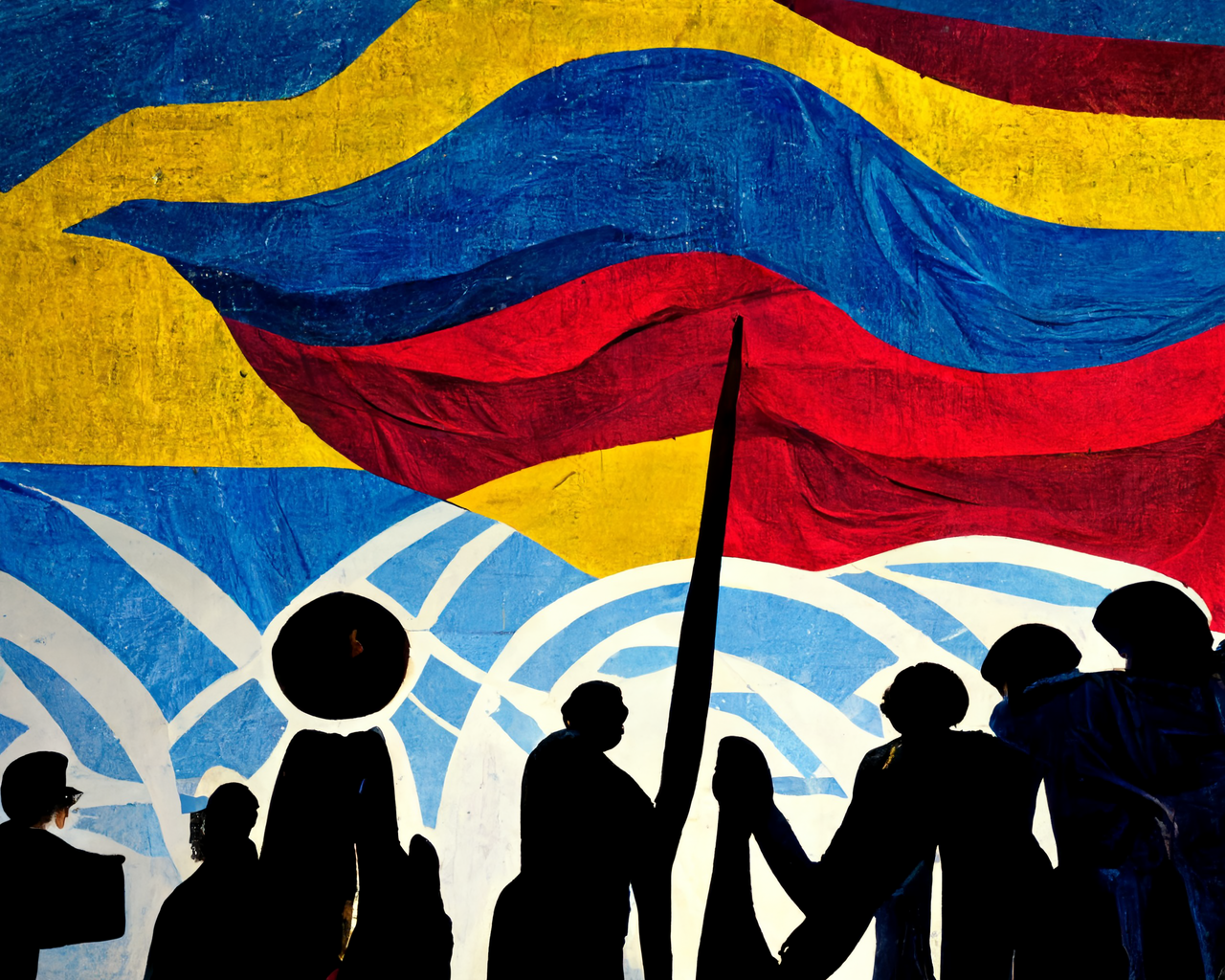
Launch of the Network of defenders rights' protection in Africa
ISHR, in collaboration with partners, has established a network of legal professionals for the protection of human rights defenders in Africa.
A group of leading international human rights organizations, including the International Service for Human Rights, have called on States to reject a procedure that could result in the exclusion of non-government organizations (NGOs) from a high level international meeting on human trafficking.
The call was made in response to a General Assembly resolution proposing that an NGO could be excluded from the UN meeting if any state objected to the participation of that NGO on any grounds whatsoever. Representatives and experts from UN member states, UN entities and civil society are expected to gather at the UN conference on 13 May 2013.
ISHR is deeply concerned about the latest attempt by States to unfairly limit the participation of non-governmental organizations in discussions on critical issues at the UN.
“Instead of welcoming contributions from relevant and expert voices on an important topic, the General Assembly is proposing a practice that could easily lead to censorship and politically motivated exclusion of valuable viewpoints.” said Michelle Evans of the International Service for Human Rights. “States are in essence setting the stage so they can ban the non-governmental organizations with whose views and positions they disagree.”
The most recent proposal is part of a broader trend in recent years to restrict civil society access at the UN.
“Unfortunately some States, such as China, Russia, Belarus, Pakistan, Cuba, Iran, Nicaragua, Syria, Venezuela, and Vietnam, are pushing hard for anti-civil society measures in every negotiation on high level meetings of the General Assembly,” said Ms Evans. “However, the no-objection procedure is severely flawed, and ignores basic principles of accountability, transparency and due process.”
Despite the Charter-based relationship between NGOs and the UN, and rhetoric supporting the vital role that civil society plays within the UN, the General Assembly is not living up to expectations.
“An unacceptable gap exists between the values and stated commitment of the UN and the actual experience of NGOs who want to contribute to its work,” said Ms Evans. “Our organizations are calling on all states to reflect on the value of the partnership between the UN and NGOs, and to ensure that civil society can meaningfully participate in and contribute to UN General Assembly processes. We urge all states to reject the no-objection procedure in future resolutions dealing with modalities for General Assembly processes.”
Background
In April 2013, 23 NGOs, including ISHR, issued a joint letter on NGO participation in the draft resolution on the High-level Meeting of the General Assembly on the Appraisal of the Global Plan of Action to Combat Trafficki of the General Assembly.
The joint NGO letter was developed in response to a provision in the draft resolution that could be used to limit the participation of NGOs in the 2013 High Level Meeting on Combating Trafficking in Persons to whose participation no State objects. The concern is that such language is open to a politically motivated exclusion of NGOs and undue censorship of these legitimate stakeholders.
This ‘no-objection’ procedure for NGO participation, whereby NGOs can be barred from participating if a single State objects, is severely flawed. The arbitrary and ad-hoc nature of the procedure poses a severe obstacle to the effective participation of NGOs, and undermines the planning of meaningful NGO contributions. By its very nature, the procedure risks excluding relevant voices in each of the fora it is applied.
Unfortunately the ‘no-objection’ procedure to arbitrarily and unfairly restrict NGO access has become prevalent in a range of meetings at UN headquarters in recent years. For example, the procedure was included in a in a resolution setting out the modalities for a 2014 special session on the follow-up to the Programme of Action of the International Conference on Population and Development (ICPD), in aresolution setting out the modalities for a 2013 high-level dialogue of the General Assembly on migration and development, and in a resolution setting out modalities for a 2013 high-level meeting of the General Assembly on the realization of the MDGs for persons with disabilities, The procedure was also used to manage NGO participation in the General Assembly’s treaty body strengthening process in 2012.
The first draft of the resolution issued by the drafters contained provisions on NGO participation which included agreed language that did not reference the no-objection procedure.[1] However, consensus could not be found, and the ‘no-objection’ procedure was included in the revised current draft. While the new draft calls for transparency and would thus preclude a State’s objection remaining anonymous, there is still no protection or due process for NGOs who are struck from the list by a State. A third and final draft is expected this week.
Update 1 May 2013
The draft resolution (A/67/L.62) on preparations for the high-level meeting on the Appraisal of the Global Plan of Action to Combat Trafficking in Persons was adopted by the General Assembly without a vote on 1 May 2013. Consensus occurred despite strong differences in views over the resolution’s language on the participation of civil society in the meeting.
Instead of building on the relatively more precise language on transparency contained in another modalities resolution adopted earlier this year (A/67/L.55. Resolution for a special session on follow-up to the Programme of Action of the International Conference on Population and Development), operative paragraph nine of the draft resolution on the high-level meeting to discuss combating trafficking includes a vague reference to the “principle of transparency”, and calls for the President of the General Assembly to submit the list of civil society representatives ” to Member States for their consideration on a non-objection basis and to bring the list to the attention of the General Assembly.” Pro-civil society States had fought for language that more firmly asserted the Assembly’s oversight role in the accreditation process.
Following the adoption, several states (Israel, Canada, Ireland (on behalf of the EU), Mexico, US, Switzerland (also on behalf of Liechtenstein and Norway), Australia, and Costa Rica) registered their discontent over the wording in the provision on participation of non-governmental organisations (NGOs). All expressed concern about the reluctance of some States to apply the principles of transparency, accountability and due process in the accreditation process for non-ECOSOC accredited NGOs in the high-level meeting.
The US, EU and Switzerland put on record that they interpreted the resolution to mean that the General Assembly would not only receive full information about the list of proposed NGOs, but that the Assembly would have the final decision on the presence of civil society representatives in the meeting. Such statements indicate that these States may be willing to call for a vote in the General Assembly if another State tries to arbitrarily block an NGO from participating. However this scenario is unlikely to occur given that the high-level meeting is taking place in less than two weeks (from the time of writing), which gives very little time for any non-ECOSOC accredited NGO to consider taking part in the process and applying for accreditation.
Many of the States who spoke out against the non-objection procedure also committed to working towards a new, improved, more transparent process, and the development of appropriate standards for selection of NGOs in future high-level meetings of the General Assembly.
Contact: Michelle Evans, [email protected], Program Manager and New York Advocacy Coordinator
Photo: ©Ashitakka
[1] For example, see operative paragraph 15 of General Assembly resolution on the scope, modalities, format and organization of the High-level Meeting of the General Assembly on the Prevention and Control of Non-communicable Diseases (A/ RES/65/238).

ISHR, in collaboration with partners, has established a network of legal professionals for the protection of human rights defenders in Africa.

Venezuela is at a complex political juncture. In this context, sixteen national and international civil society organisations have put forward a ten-point list of priority demands.

Fifty organisations urge the UN Human Rights Council to urgently convene a special session to address an unprecedented escalation in mass unlawful killings of protesters in Iran.